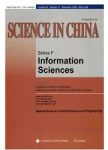Future vehicles: learnable wheeled robots
Future vehicles: learnable wheeled robots作者机构:Academy of Military Science Beijing Key Laboratory of Information Service Engineering Beijing Union University College of Robotics Beijing Union University School of Software Tsinghua University
出 版 物:《Science China(Information Sciences)》 (中国科学:信息科学(英文版))
年 卷 期:2020年第63卷第9期
页 面:255-262页
核心收录:
学科分类:080202[工学-机械电子工程] 082304[工学-载运工具运用工程] 08[工学] 0804[工学-仪器科学与技术] 080204[工学-车辆工程] 0802[工学-机械工程] 0823[工学-交通运输工程]
基 金:partially founded by National Natural Science Foundation of China (Grant Nos.61871038 61931012) Beijing Natural Science Foundation (Grant No. 4182022) Major project of Beijing Social Science Foundation (Grant No. 18ZDA09)
主 题:wheeled robots driving brain swarm intelligence negative learning data-driven self-learning
摘 要:As one of the important signs of the third wave of artificial intelligence, wheeled robots not only inherit knowledge but also learn independently, which brings about to learnable wheeled robots that use a driving brain to achieve data-driven control and learning. Presently, most existing technologies for selfdriving vehicles can learn positively from the benchmark drivers to guarantee safe driving. However, in many unpredicted situations, such as rollover, human drivers often cause the behavior of irrational subconscious on account of human emotions like panic. In this paper, we propose a learnable wheeled robot using the driving brain by taking the rollover as an example, which is the most serious and dangerous situation in dynamic vehicle operations. Then, based on the analysis of rollover accidents, we utilize the driving brain reversely and conduct negative learning, materializing, and condensing the group intelligence of accident experts, to solve the problem of the lack of individual intelligence in emergencies and further promote real-time response to other dangerous conditions, such as puncture for self-driving vehicles.



